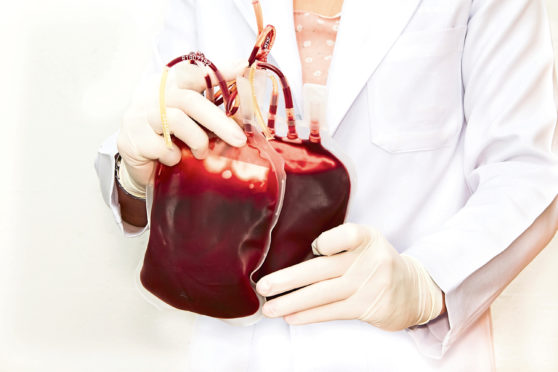Hundreds of haemophiliacs could have been spared infection with HIV if England had sought help from Scotland in manufacturing blood products, new documents suggest.
A letter dated January 1990 shows Scotland had previously had spare capacity to help England produce the much-need blood product Factor VIII, but government officials in England rejected the idea.
Instead, England continued to import large amounts of Factor VIII from risky sources abroad, including US prisoners and drug addicts who were infected with diseases including HIV.
The contaminated blood scandal has been labelled the worst treatment disaster in the history of the NHS, leaving thousands of patients infected with hepatitis and HIV, and causing many early deaths.
Most of those involved had the blood-clotting disorder haemophilia and relied on regular injections of Factor VIII to survive.
But they were unaware they were receiving contaminated Factor VIII and, despite repeated warnings, continued to be given the product throughout the 1970s and 1980s.
The latest document was released under the Freedom of Information Act to campaigner Jason Evans, whose father died in 1993 having contracted hepatitis and HIV.
In it, Professor John Cash, a former director of the Scottish Blood Transfusion Service, said the decision not to use Scotland’s spare capacity to produce Factor VIII for England was “a grave error of judgment”.
Scotland had been virtually self-sufficient in the manufacture of its Factor VIII which took place at the Protein Fractionation Centre (PFC) in Liberton, a suburb to the south of Edinburgh.
The letter said the Scottish PFC had had “very substantial” spare capacity, which had been verified during an experiment at the centre.
Mr Cash wrote: “It was assumed by those of us on the shop floor that this experiment would expedite arrangements to give England and Wales assistance – but nothing materialised.”
A Department of Health and Social Care spokeswoman said: “The infected blood tragedy should never have happened and the ongoing public inquiry was set up to get to the truth and give families the answers they deserve.
“We are committed to being open and transparent with the inquiry and have waived the usual legal privileges to assist the process.”
The infected blood inquiry will resume its public hearings next month.


